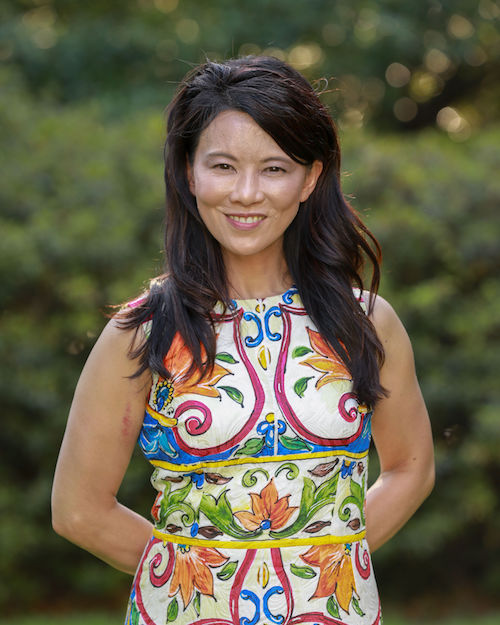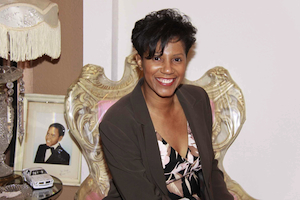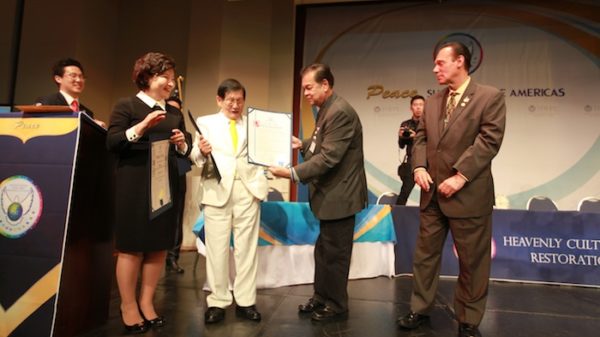Magazine, The Immigrant Experience
Chiufang Hwang, M.D. is a Taiwanese-born doctor who arrived in the United States at the age of two when her parents sought to flee the regime of a dictator who used fear, brutality, and even murder to stay in power and quell any political or social dissent. But the impact of surviving in a land where oppression was normalized didn’t end on America’s shores. In the latest of Hwang’s three books, Escape from Taiwan, she recounts how her parents’ generation may have found refuge here, but never felt truly safe, which resulted in inadvertently creating a legacy of fear among the children of these Taiwanese immigrants as well. Here she shares how the political repression her parents experienced in Taiwan shaped her childhood experiences, and ultimately impacted her life here as an American.
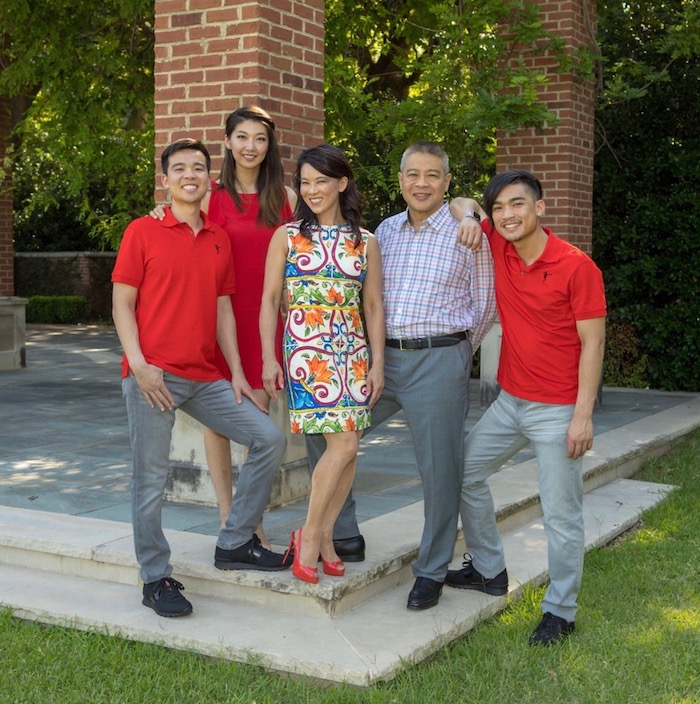
Hwang family
A Push for Privacy
Even though she was shy and isolated herself, Hwang thought her private, insular nature was just proof of a real-life stereotype. But, in fact, she realized over the years that such self-isolationism happens to be a very real, cultural trait. As a rule, no matter how turbulent their lives are, Taiwanese people maintain tranquil appearances. In her case, Hwang believes this reserved nature stems from the fact that her parents were raised to be very secretive, even with their closest friends. That instinct to fly under the radar and not make waves was borne from an ingrained fear passed down through many generations, a heritage of living under an oppressive regime where vocal dissent could be fatal. To protect her, Hwang’s parents did their best to instill in her the dangers of speaking out – about anything.
Clinging Tightly to Taiwan
Hwang knew that, even as ex-pats, her parents were still controlled by Taiwan’s totalitarian government. She learned early on that if you wanted your parents to keep their jobs and stay alive, you had to avoid doing anything that could bring unwanted attention. Since you never could tell who from the Kuomintang – the authoritarian political party ruling Taiwan – could be spying on you, that meant keeping your social life limited to a small circle of other Taiwanese families. While this tight-knit community afforded familiarity, it also limited exposure to outsiders. Furthering her isolation was the fact that her mother clung to all things Taiwan, from food and language to dress, making it difficult and confusing for Hwang to blend in with American kids. And she wasn’t alone. Later, Hwang realized that many of the daughters of other Taiwanese families had gone through many of the same struggles to find their identity, which in turn, affected their efforts to assimilate.
A Submissiveness that Persists
A constant in Hwang’s young life were daughters of her father’s Taiwanese friends. While not confidantes, they belonged to the same sorority: growing up in one culture while being raised by another. Pat was one of the girls Hwang saw routinely during monthly visits as a child. Even though they eventually moved apart, the girls stayed in touch over the years and experienced similarities in their adults lives as well: both Hwang and Pat went to medical school and, inevitably, married Taiwanese men, although it took Pat much longer than her parents hoped. In the 1980s, most people, and children of Taiwanese immigrants in particular, married before their thirties. When Pat turned thirty still single, her parents became anxious and played matchmaker, fixing her up with a man in what amounted to an arranged marriage. Despite having gone to college and becoming a physician, Pat was still submissive enough to let her parents have a significant say in who she married.
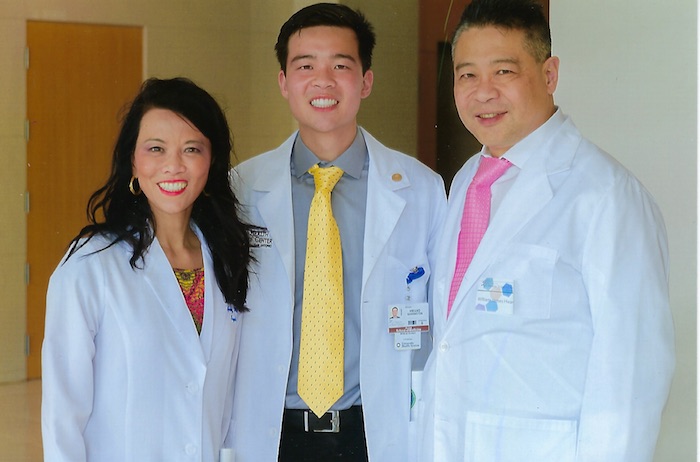
WhiteCoatceremony
Suffering in Silence
Despite having witnessed her younger sister’s battle with acute lymphocytic leukemia as a child, it wasn’t until Pat’s cancer diagnosis in her 40s that, Hwang – now benefiting from years of medical practice and observation – was able to make a connection about patient and family behaviors in the midst of these diseases. In Taiwanese culture, illness is considered a very private matter, not so much out of concern for the patient but because of how it might reflect on the family. When Hwang’s sister was diagnosed, her parents kept her cancer hidden from even their closest friends because they were afraid outsiders – especially other Taiwanese – would think their family had bad genes and consequently hurt the children’s marriage prospects. But, as Hwang came to recognize, the cultural taboos limit the love and support those suffering from illness need in what is perhaps the most tragic price of fear.
The Risk of Disappointment
Despite the pressure to embrace her heritage and her parents’ Old World customs, Hwang had an independent streak that was decidedly American. She was also ambitious and determined not to sublimate her life and goals just to make her parents happy or abide by quaint conventions. She excelled in school, went to medical school, and made life choices her parents wouldn’t approve of, like getting engaged without their permission. It wasn’t that she didn’t respect her parents and their cultural traditions; however, early on she understood intuitively that they were designed for a different place and time and didn’t apply to her life here. It was a fine line, and one many first-generation children of immigrants constantly walk. But she knew to succeed, and reach her full potential, she had to be willing to endure her parents’ occasional disappointment for not being traditional enough or dutiful to their wishes. Even when she published a memoir of her early years, her mother complained that it brought too much shame on all of them, but Hwang followed her writing aspirations even without their encouragement.
When Culture Breeds Resentment
While Americans are socialized to want to marry for love, that’s not the case among Taiwanese, who take a much more practical rather than romantic view towards the institution, assessing a candidate based on whether they’d make a good spouse or parent. That’s largely because in Taiwanese culture, it is not encouraged to wear your heart on your sleeve. In fact, not only is displaying affection virtually unheard of, it’s almost considered a sign of weakness; thus, everything is kept inside. The problem with this, Hwang discovered, is that internalizing your feelings can create simmering resentments that undermine a relationship. After all, if you don’t talk about things, you can’t work them out. Hwang reasons that this cultural reticence is a factor as to why the divorce rate in Taiwan is so high – twice as high as in the US.
Changing the Dialogue
Hwang recognizes that we’re all products of the generations that came before us. We may not have lived under Japanese occupation in the 1800s or totalitarian Chinese rule after World War II, but those events shaped the people our grandparents were, who in turn shaped our parents, who in turn influenced who we became. Their legacy is ours by default, but Hwang says that doesn’t mean we can’t change the narrative. For Taiwanese immigrants, that means instilling hope instead of teaching fear. Instead of being socially isolated and insular, we can encourage inclusion and show the benefit of diversity. Instead of watching from afar in silence, we can support those in Taiwan who seek to maintain democracy.
In writing Escape from Taiwan, Chiufang Hwang, M.D. discovered that she wasn’t just telling the story of the immigrant experience of her people. Instead, at its heart, the book is about the human experience of figuring out who you are, where you belong, reconciling your parents’ past with your own present, and deciding what you want to add to your family’s legacy for the generations that follow.

